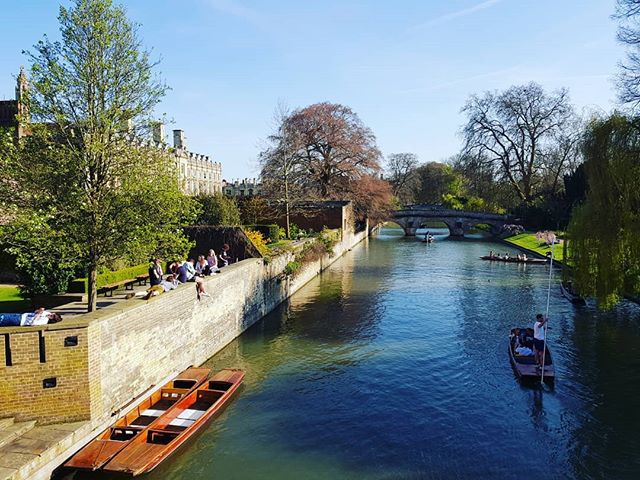Law
- UCAS Code: M100 BA/Law
- Campus Code: 4
- Duration: 3 years
- Places per year: 8
A Law degree offers a rich and diverse path to understanding systems and relationships that govern the world around you.
It provides you with an exceptional opportunity to develop a range of vital academic and practical skills of much wider value. You will learn to think critically and rigorously. You will learn how to express your views effectively both in writing and in oral discussion: clearly, precisely, concisely. You will learn how to persuade others of your point of view. You will develop a sharp analytical mindset which enables you sift large amounts of material in a short space of time.
A Law degree is challenging, but it is also rewarding. In addition, whilst a Law degree provides an excellent foundation for a career in legal practice, many Law students go on to a wide range of exciting careers outside of the law. Employers in all sectors value the skills that good Law graduates bring to the table.

Law
Looking for something specific? Use these quick links to get to where you want to go…
Course Overview
The benefits of a three-year Law degree, over a one-year conversion course, are numerous. You will necessarily have an extended opportunity to develop the skills and understanding that any good lawyer needs. To this end, you will analyse a wide range of seminal legal cases in detail; you will wrestle with the intricate provisions of legislation; and you will grapple with the profound theoretical questions raised by each. Nevertheless, your concerns will not be exclusively or narrowly ‘legal’. A good university Law degree will afford you with a critical understanding of legal doctrine, and will expose you to complex and challenging questions relating to fields that span the full breadth of the social sciences. The law, and therefore any good Law student, must unavoidably address the fundamental political, economic, social and moral issues of our time.
Although our course (referred to elsewhere as LLB) is primarily concerned with English law, there are opportunities to study other legal systems, including civil (Roman) law, EU law and international law. You can also study theoretical and sociological aspects of law such as jurisprudence or parts of criminology.
In the course of your studies, you are also likely to learn things that you may not have imagined a Law degree might teach you: how someone might cheat at the card game, punto banco; how early 20th century manufacturers bottled ginger beer; how workers contract industrial diseases; how you might acquire a claim to land by squatting; how large companies abuse their market power; how the proceeds of fraud are laundered; and how our payment systems enable us to operate almost totally without cash. The law regulates and facilitates the full breadth of human activity and behaviour. In a Law degree, you will see it all.

How You Learn
For each subject, you attend lectures given by teaching members of the Faculty of Law. The typical number of lecture hours for each paper is 36 per year, mostly timetabled for the first two terms of each year, which equates to about 10-12 hours of lectures a week.
Supervisions – College-based, small group teaching – are usually given fortnightly in each paper: essays or problem questions may be set; questions may be brought to, or put by, the supervisor and, above all, intellectually interesting topics will be discussed.
Each paper is assessed by a written examination at the end of the year. In the third year, you have the option of substituting one paper for a dissertation.
The Faculty of Law building is located a short walk from the Trinity Hall and close to the University Library. It houses lecture theatres, seminar rooms and a moot court, as well as the comprehensive Squire Law Library, offering more than 180,000 volumes and excellent computing facilities.
Law Admissions Advice
Dr Rachel Tolley explains everything you need to know about Cambridge Law interviews, the LNAT admissions test, and how Trinity Hall choose which Law students to give offers to.
Rachel’s main area of research concerns the effect of deception and mistake on the validity of consent to sexual activity in English criminal law. Rachel also maintains research interests in the non-fatal offences against the person. She is currently working on a paper which considers how the law should conceptualise damage to prosthetic limbs, wheelchairs and other mobility aids. Rachel teaches Criminal Law and and Criminal Procedure and Evidence, and is honoured to hold a fellowship in the name of John Collier.

Entry Requirements
Minimum Offer Level
A-Level: A*AA
IB Diploma: 42 points, with 776 at Higher Level
Other: See the University’s Entry Requirements page
Subject Requirements
We do not ask for any specific subjects, though for a strong application we would recommend academic rather than vocational subjects. The study of Law at GCSE or A Level is not required and neither advantages or disadvantages candidates at any stage of the admissions process.

Admissions Process
Written Work
None required.
Admissions Assessment
All applicants for Law are required to take the National Admissions Test for Law (LNAT) at an authorised assessment centre. You must register in advance for this test.
See the University’s LNAT page for further information.
Interviews
Two interviews of around 25 minutes each. The interviews focus primarily on exercises designed to assess academic ability and potential. The exercise may be based on reading material given to the candidate prior to each interview. Prior knowledge of the law is neither expected nor assumed.

Law at Trinity Hall
Trinity Hall prides itself on its legal tradition. The College was founded in 1350 by William Bateman, Bishop of Norwich, for the study of law. For over 650 years since then, the College’s Fellows and students have aspired to excellence in the law. Many of its students have gone on to very distinguished legal careers – as prominent practitioners, renowned judges, and leading academic lawyers.
The College’s Law Fellows are dedicated to academic excellence in the study of law and are committed to fostering a friendly and supportive legal community in which all of our students, regardless of their backgrounds, can realise their potential – developing the skills and critical understanding they require for successful future careers.
The Jerwood Library at Trinity Hall has a well-stocked Law collection housed on its top floor, with wonderful views over the River Cam and The Backs. Trinity Hall also has a very active student-run Law Society which organises regular speaker events, annual mooting competitions and a variety of social events.
The generosity of Trinity Hall’s alumni enables us to offer numerous prizes for academic excellence in Law whilst at Trinity Hall. We also make awards annually from The Dr Coopers’ Fund to recently graduated students who have demonstrated academic excellence during their time at Trinity Hall and who wish to enter the legal profession or intend to pursue a Masters degree in Law or another discipline. Very generous awards can be made under this fund towards the costs of postgraduate study, making affordable what would otherwise be unaffordable for many students.
Video Resource
Going beyond what you learn at school and engaging with super-curricular resources is a great way to develop your knowledge of your subject and demonstrate your passion at interview.
Watch this video of Dr Rachel Clement Tolley discussing reforming the criminal law for users of mobility aids to learn more about Law.
You may also want to make use of the Exploring Law course on the Faculty website.